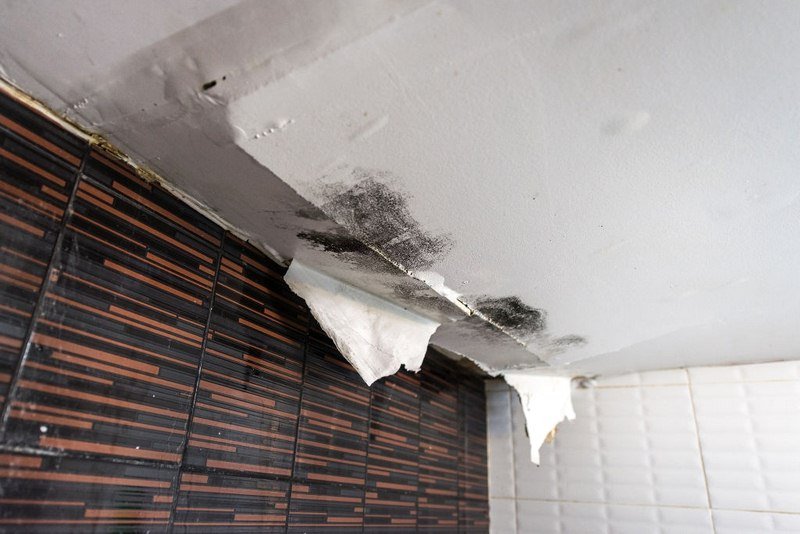The House's Principal Frequent Triggers of Leak Problems: In-Depth Analysis
The House's Principal Frequent Triggers of Leak Problems: In-Depth Analysis
Blog Article
What are your ideas regarding How Fast Water Damage Can Ruin Your Home?

Leakages not just trigger waste of water however can likewise cause unnecessary damage to your home and promote unwanted natural development. By looking and comprehending for daily situations that trigger leaks, you can secure your home from future leakages as well as unneeded damage.
Encroaching origins
A lot of water leakages start outside the residence instead than inside it. You may see damp spots or sinkholes in your yard, as well as that may imply that tree origins are getting into water lines triggering water to permeate out.
Rusty water systems
As time passes by, your plumbing system ages as well as rust such as corrosion may start gnawing the pipelines. This might be the cause of staining or bending on your pipes. This calls for an evaluation with your plumber instantly. If our plumbing system is old, consider replacing the pipelines since they are at a higher danger of rust than the more recent designs.
Defective Pipe Joints
Pipeline joints can degrade over time, resulting in water leakages. If you have loud pipelines that make ticking or banging noises, especially when the warm water is turned on, your pipe joints are possibly under a great deal of stress.
Instantaneous temperature adjustments.
Severe temperature modifications in our pipes can cause them to expand and also acquire all of a sudden. This expansion as well as contraction may cause splits in the pipelines, especially if the temperature are listed below freezing.
Poor Water Connectors
At times, a leak can be caused by loosened tubes and also pipes that provide your home appliances. In situation of a water links leakage, you may see water running directly from the supply line or puddles around your devices.
Obstructed Drains
Clogged drains may be frustrating and inconveniencing, but they can occasionally wind up creating an overflow leading to break pipes. Maintain getting rid of any kind of materials that might decrease your drains that can obstruct them to prevent such aggravations.
All the above are sources of leaks but not all water leaks arise from plumbing leaks; some leaks could originate from roof covering leakages. All leakages need to be repaired promptly to prevent water damages.
Leakages not only cause waste of water yet can also trigger unneeded damages to your house as well as promote unwanted natural growth. By looking and understanding for daily circumstances that create leakages, you can protect your residence from future leakages and also unnecessary damage. Today, we will certainly look at six leak causes that might be creating your pipes to leak.
At times, a leakage can be caused by loose pipes and pipelines that supply your home appliances. In case of a water connections leakage, you may discover water running directly from the supply line or puddles around your appliances.
How To Check For Water Leak In Your Home
How To Check for Leaks
The average household's leaks can account for nearly 10,000 gallons of water wasted every year and ten percent of homes have leaks that waste 90 gallons or more per day. Common types of leaks found in the home are worn toilet flappers, dripping faucets, and other leaking valves. These types of leaks are often easy to fix, requiring only a few tools and hardware that can pay for themselves in water savings. Fixing easily corrected household water leaks can save homeowners about 10 percent on their water bills.
To check for leaks in your home, you first need to determine whether you're wasting water and then identify the source of the leak. Here are some tips for finding leaks:
Take a look at your water usage during a colder month, such as January or February. If a family of four exceeds 12,000 gallons per month, there are serious leaks.
Check your water meter before and after a two-hour period when no water is being used. If the meter changes at all, you probably have a leak.
Identify toilet leaks by placing a drop of food coloring in the toilet tank. If any color shows up in the bowl after 10 minutes, you have a leak. (Be sure to flush immediately after the experiment to avoid staining the tank.)
Examine faucet gaskets and pipe fittings for any water on the outside of the pipe to check for surface leaks.
Undetected water leaks can happen without the home or business owner even realizing. If you suspect a water leak, but not able to find the source. It is time to contact a professional water leak detection service, The Leak Doctor.
How To Find a Water Leak In Your Home
https://www.leakdoctor.com/blog/How-To-Check-For-Water-Leak-In-Your-Home_AE197.html

I ran across that blog posting on Common Water Leaks In House when doing research the search engines. Appreciated our write-up? Please share it. Help another person locate it. Thanks a lot for your time. Visit us again soon.
Trustworthy fix? Call. Report this page